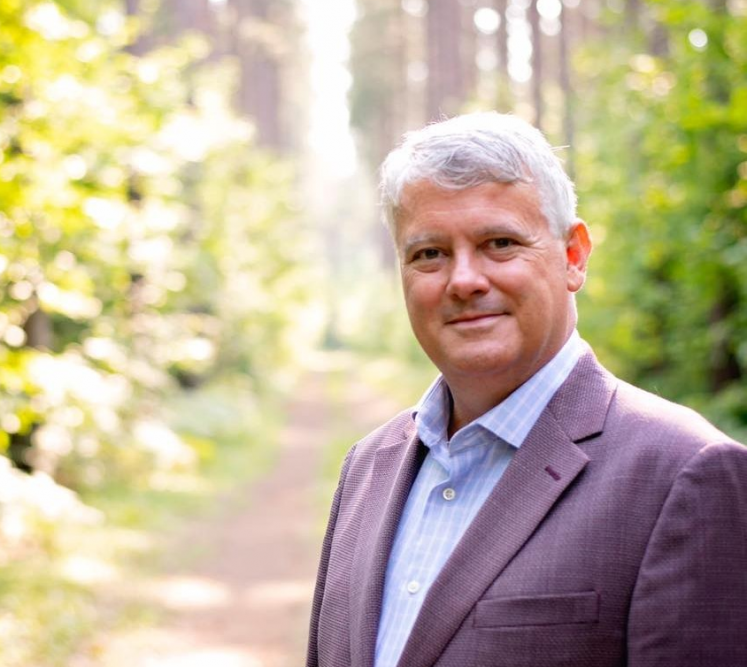The man who, in defiance of military brass, blew the whistle on atrocities committed by members of the Canadian Airborne Regiment, passed away in Thunder Bay with little fanfare on May 13.
Dr. Barry Donald Armstrong was 72.
His obituary was published in The Chronicle Journal in Thunder Bay, where he had found a professional medical home in the Thunder Bay Regional Health Sciences Centre. on May 18.
Bare-boned, it gave no indication of a past that I said in a column in 2002 would have brought a lesser man to his knees.
“Armstrong,” I said in the column, “was the sole bright light in a dark period in Canadian military history when, standing virtually alone against his superiors, he blew the lid off their attempt to cover up the shooting of two Somalis by members of the Canadian Airborne Regiment who were on a peacekeeping mission in that country in 1993.”
It led to a commission of inquiry but cost Armstrong dearly in personal terms. Any military career aspirations he may have had shattered, he returned to civilian life in 1997, becoming general surgeon at the Dryden Regional Health Centre.
Life didn’t turn out to be easy for him there either.
In 2001 Armstrong found himself fighting for his professional life when he was informed by the Medical Advisory Committee at the Health Centre that the renewal of his hospital privileges, which were done yearly, were suspended indefinitely.
In regard to what came to be known as the Somali Affair, on Mar. 4, 1993, Canadian paratroopers shot two unarmed Somalis inside the Canadian compound. One was killed, the other wounded. Armstrong surmised they were shot in the back while fleeing.
Later information revealed they had been baited with food and water and paratroopers had been observing them for 15 minutes before opening fire.
“In my 20 years in the military I’d seen a lot,” Armstrong said, “but this was something you can’t forget, or forgive.”
Armstrong went to his commanding officer and detailed his findings, believing this conversation would lead to an investigation and punishment for those involved. Instead, the move was to damage control.
“I guess that four days after the incident I knew I wasn’t going to get any support from the military,” said Armstrong.
And he didn’t get it from the military at the commission of inquiry either.
But the commissioners found that the chain of command’s response to the administrative, operational, and disciplinary problems manifested in the March 4 incident was weak, untimely, inadequate, self-serving, unjustified and unbecoming.
“When positive action was required, the chain of command covered up its undeniable responsibility for the March 4 incident, and avoided public accountability,” the report said.
For the way he stood up to his superiors in detailing what actually went on, I considered him a Canadian hero.
I learned of his death through an email from the CBC evening show As It Happens. Kevin Roberts said they were trying to figure out if they should be doing something on Armstrong and they saw on the Internet I had done some reporting on his troubles in Dryden.
I sent the four columns I had written on the issue but they got there too late so they just ran a “quick obit” mentioning Somalia.
“Not a man to back down from a fight,” Roberts said of Armstrong. “I’m really wishing that I’d seen these (columns) before filing.”
No other news outlet seemed to touch it, not surprising, I suppose, considering the state of the news industry these days..
Armstrong”s fight with the Dryden Regional Health Centre was also basically internal, his colleagues there seemingly attempting to force him out. There were no complaints against him from the public; he had solid support, a petition with 2,000 names in the city of 6,000 backing him.
It appeared to me that the Health Centre was acting on bad legal advice.
Sec. 39 of the Public Hospitals Act says that where “a member has applied for reappointment, his or her reappointment shall be deemed to continue, (a) until the reappointment is granted, or (b) where he or she is served with notice that the board refuses to grant the reappointment, until the time for giving notice requiring a hearing by the Appeal Board has expired and, where a hearing is required, until the decision of the appeal board has become final.”
In plain English, the status quo remains until all appeals are complete.
Yet despite what the Act says, Brian Collins, chairman of the board, insisted the Medical Advisory Committee was within its right to suspend Armstrong’s privileges.
“All the lawyers we have talked to, mine included, agree,” he said.
I will bet Collins had second thoughts on that a year or so later.
Because Armstrong, as you could well expect, sued for having his name dragged through the mud and being taken before the College of Physicians and Surgeons.
Although there was a tight lid on the settlement Armstrong and the Health Centre ultimately agreed to, I wrote that you could bet that this one, like the Somali Affair, would have cost Armstrong dearly in emotional terms, but it didn’t cost him financially. That would have fallen on the Health Centre.
“Do not be concerned about my financial status. Jennifer (his wife) and I have been blessed with enough funds to set aside what is needed for our children’s university education. We will certainly remain financially independent,” he told me in an email.
Six months later the College of Physicians and Surgeons withdrew allegations before its disciplinary committee.
Armstrong was allowed to return to practice, which he did with the Thunder Bay Regional Sciences Centre, bringing an all is well that ends well closure to his story.
Armstrong is survived by his wife, Jennifer; sisters Patricia and Alison; his three children Karen, Marie, and David; and four grandchildren, Benjamin and Morgan (Karen & Andy), Hailey and Lucas (Marie & Jay).






